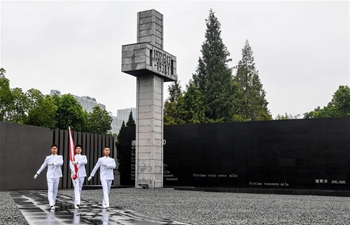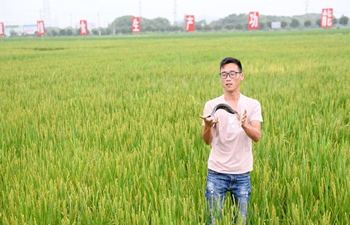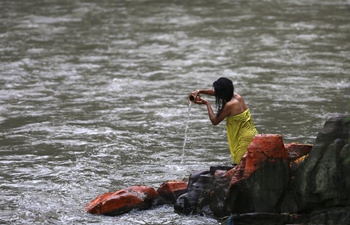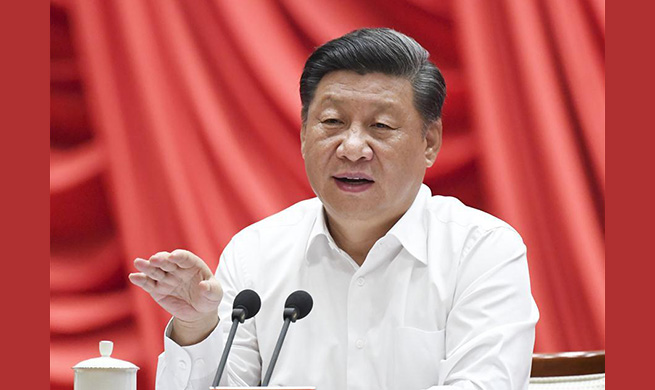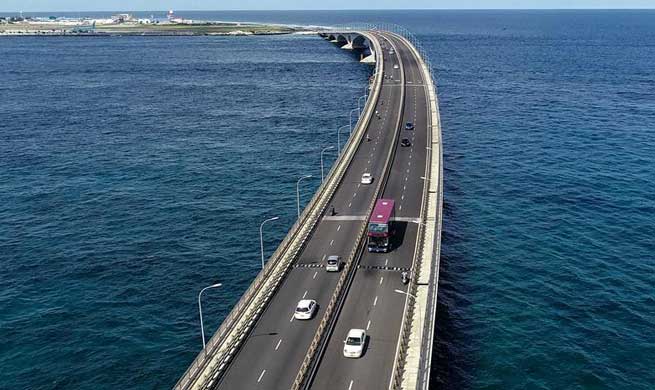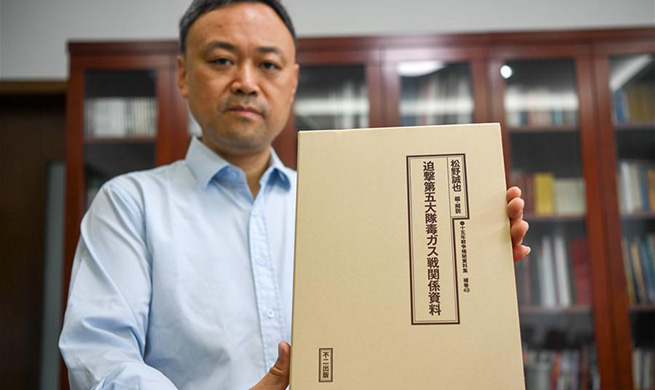UNITED NATIONS, Sept. 3 (Xinhua) -- Schools have reopened for an estimated two million children living in communities affected by the Ebola outbreak in the eastern Democratic Republic of the Congo (DRC), an official with the United Nations Children's Fund (UNICEF) said on Tuesday.
"Ebola has had a devastating and disruptive impact on families and communities here," said UNICEF Representative in the DRC Edouard Beigbeder. "Ensuring that these children have access to safe, protective and welcoming schools is key to helping them regain normalcy and continue their learning."
There are 6,509 primary and secondary schools in the Ebola-affected areas of Ituri, North Kivu and South Kivu provinces - 3,800 of them are in high-risk areas, but most of the schools have reopened for the new school term, the UNICEF official said.
"At the start of the last academic year, the Ebola outbreak was still very new," said Fati Bagna Seyni, UNICEF's education lead in the Ebola response. "Many parents were scared to send their children to school fearing they could be infected in class. Teachers lacked the information and training to teach children about the disease or assist vulnerable children from Ebola-affected families. A lot has changed."
Over the past year, UNICEF has worked closely with the Ministry of Education and other partners to deliver targeted assistance to schools, teachers, parents and students in affected areas.
They have helped to equip schools with thermometers, hygiene supplies and handwashing stations and training school administrators and teachers on everything from prevention measures to basic case management if a student or teacher begins to show symptoms.
Teaching materials, including an instruction guide with child-friendly illustrations that helps teachers teach children about how the disease spreads, as well as the prevention and good hygiene practices, have also been produced.
Among the students returning to class include hundreds of school-age Ebola survivors and children orphaned to Ebola.
"Informed teachers are incredibly valuable to the Ebola response because they are respected and listened to," said Bagna Seyni. "Children learn how to prevent the spread of Ebola from teachers and bring those messages home to their parents and communities. Teachers and children can be great amplifiers and influencers and it's essential we take advantage of that."
UNICEF and their partners have trained over 32,400 teachers on how to teach children about Ebola prevention and how to make schools a protective environment for children, reached more than 928,000 students with vital information about Ebola, and nearly 2,350 schools in high-risk areas have been provided with handwashing stations, thermometers and hygiene supplies.




